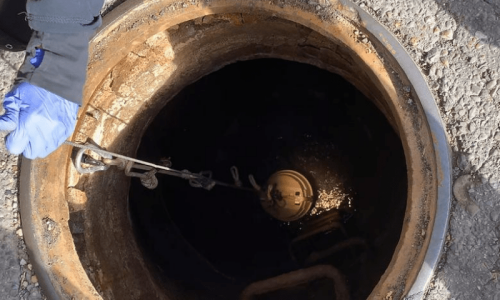KARACHI, Feb 9: Basing on a resolution passed by its council in June last year, the city district government of Karachi has imposed a huge tax on owners of residential as well as commercial plots for using its infrastructure – roads, bridges, flyovers, parks, underpasses and streetlights – and for benefiting from its ‘solid waste management system’.
Sources told Dawn that the office of the EDO (municipal services) had estimated to earn Rs2 billion annually by issuing new bills planned to be issued on a quarterly basis, in addition to what it was getting in the name of fire and conservancy (sweeping of roads and garbage disposal) taxes collected by the Karachi Water and Sewerage Board.
However, citizens have widely criticised the imposition of the tax enforced under the city council resolution of June 2, 2008 at a time when they are already in the grip of an economic recession.
The city council resolution on the implementation of public utility charges (PUC) had been adopted by the city council hurriedly and in the following days it raised concerns among the citizens and political quarters as well.
At that time it was said that the city council was giving authority to the CDGK for levying charges on citizens only for a door-to-door collection of solid waste and its disposal at the designated landfill site.
EDO for Municipal Services Masood Alam told Dawn on Monday that his office had already issued 300,000 bills under the head of PUC for the first time and 700,000 bills would be issued in the next few days.
“Consumers are required to pay the total amount of 12 months in four instalments and the first bill is for January-March 2009,” he added.
Answering a question, he said the charges for garbage collection and disposal had also been included in the bill, while a decision about the withdrawal of the conservancy and fire tax included in the monthly KWSB bills was yet to be taken.
“The measure is necessitated by pressing financial constraints and going for any amendment or fresh discussion on the tax levying decision of June 2, 2008 is too late,” Mr Alam said, adding that the CDGK had also invited objections and held a public hearing on the new taxes in 2007.
According to the municipal service department’s bills, holders of plots measuring 40-80 square yards will have to pay Rs210 and 120-square-yard plot holders will pay Rs450 on a quarterly basis.
According to the PUC resolution, the CDGK was allowed to charge Rs70 on residential houses/plots/flats up to 80 square yards, Rs150 on 81 to 120 square yards, Rs200 on 121 to 240 square yards, Rs300 on 241 to 500 square yards, Rs500 on 501 to 1,000 square yards and Rs800 on houses/plots/flats above 1,000 square yards per month for collecting garbage from houses, claimed a source.
Commercial units established on 200 sq yards to 10,000 sq yards or above will have to pay Rs500 to Rs5,000 as PUC. Industrial units on a covered area of 1,000 sq yards to 5,000 sq yards and above will have to pay Rs500 to Rs2,000 per month under the same head, it was further learnt.
The EDO (finance), Munawar Imam, said all HBL branches had been authorised to collect PUC bills issued by the municipal service department. He said the government was also considering taking back the task of conservancy and garbage tax collection from the KWSB.
The revenue director of the KWSB, Mahmood Qadir, said he had seen a notification regarding the collection of new taxes by the CDGK, but had not been told to stop collecting the fire and conservancy taxes.Sources in the CDGK said the government might come under fire on the implementation of the new tax scheme which it had deferred for about eight months, particularly at a time when the existing councilors and nazims were on the verge of completing their sanctioned tenure under the local government system.
When contacted by Dawn, Saeed Ghani, the Leader of the Opposition in the City Council, said he and other members had described the resolution as an unjust move in the past and today, too, he would oppose this as he saw no reason for the imposition of such taxes on the citizens.
The proposal of tax collection from consumers for the sweeping of streets and garbage collection was presented to the council by the CDGK in the name of foreign contractors and that too without any homework for ensuring transparency and furnishing any complete data of households and industrial and commercial units in the city.
“I still feel that the collection of new taxes will not only add to the burden on the citizens, but will also open a new door to corruption,” he said, adding that he would definitely request the chief minister and other relevant authorities to look into the matter and stop the CDGK from collecting the utilisation charges against its infrastructure.
Initially, the CDGK entered into an agreement with a Chinese firm for the collection and disposal of solid waste from all parts of the city and also for collecting the PUC and passing it to the CDGK after deducting seven per cent of it as a fee for collecting the taxes. However, so far the government has not launched its solid waste collection and establishment of garbage stations and landfill sites.













































Dear visitor, the comments section is undergoing an overhaul and will return soon.